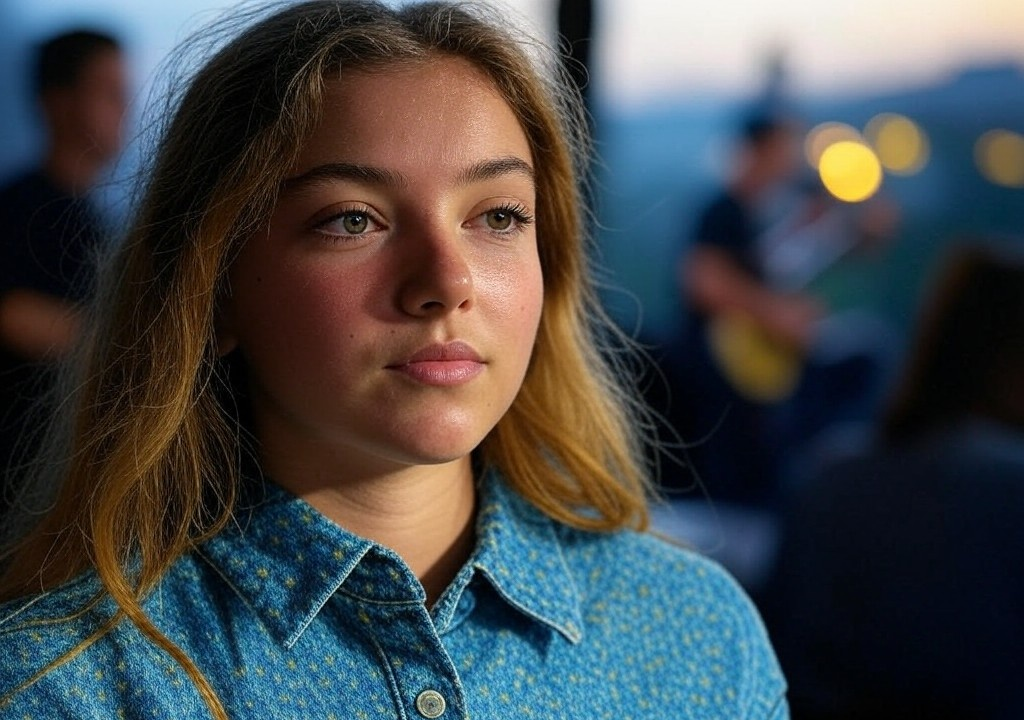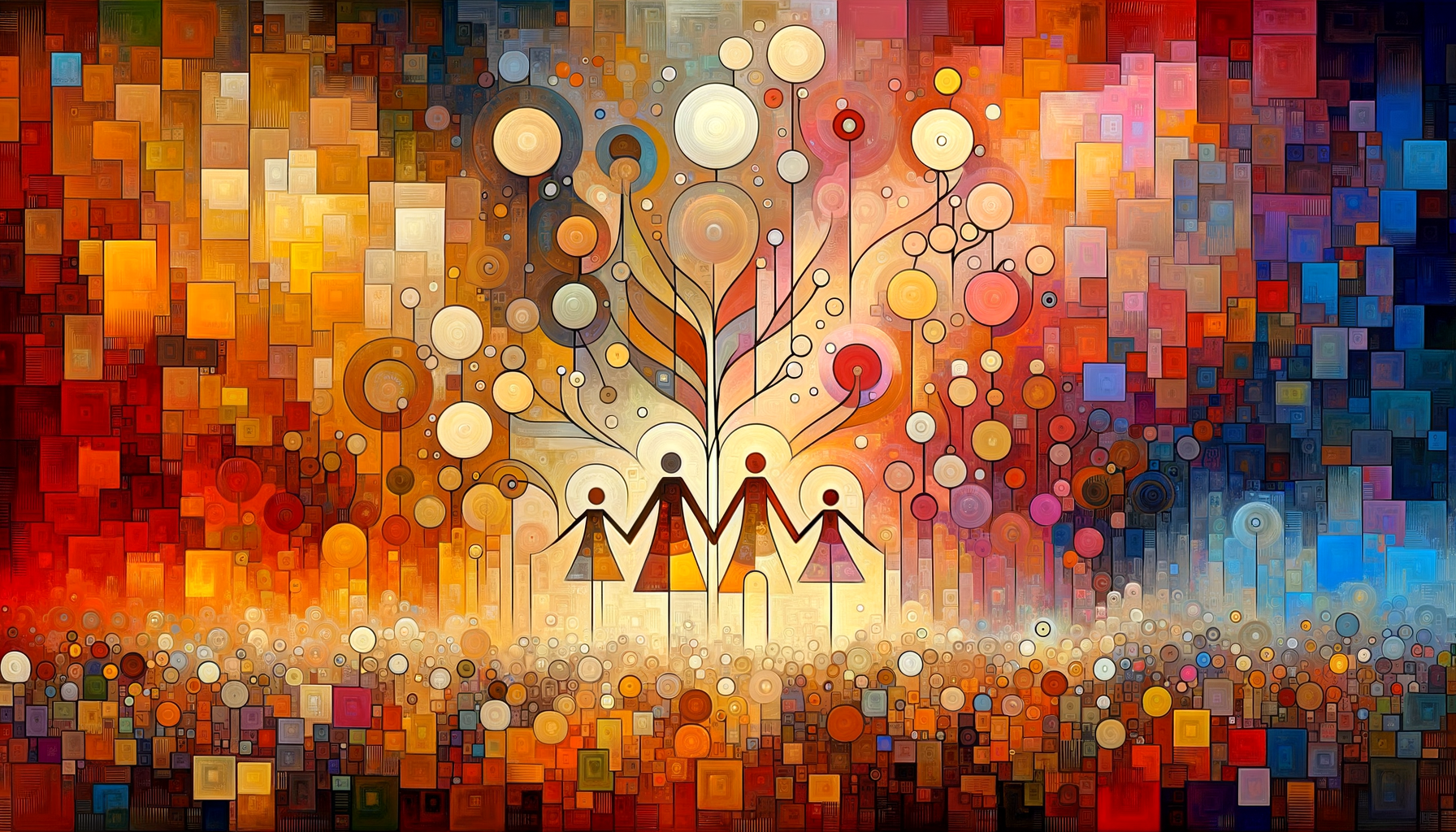The Stories in My Family
How a Jell-O Mold, a Civil Rights Case, and a Questionably Psychic Aunt Shaped My Perspective on Love and Relationships
The Power of a Well-Told Tale
Growing up, stories were the currency in my family. Everything—and I mean everything—came with a tale. The dent on the edge of the dining room table wasn’t just a flaw; it was “the spot where Grandpa yelled so loud during a Cowboys game that his chair toppled over.” That ancient hand-me-down cardigan in the closet wasn’t just a sweater; it was “the one Mom wore the night she told Dad to stop quoting Shakespeare and just kiss her already.” In my family, stories weren’t just decorations—they served as the invisible thread stitching generations together.
And here’s the thing about growing up stuffed to the ears with family lore: it rewires your brain. Even now, as an adult navigating modern relationships in Austin—a city equal parts kombucha and cowboy boots—I find myself looking for the stories. The ones we carry. The ones we create. The ones that remind us love isn’t just about grand gestures. Sometimes, it’s about the time your dad accidentally put salt instead of sugar in his morning coffee and claimed it tasted just fine (and honestly, we all believed him).
So, let me tell you a few stories that shaped me—my worldview, my relationships, and why I firmly believe that asking someone about their favorite childhood meal will reveal more about them than all the dating apps on the planet ever could.
Chapter 1: The Jell-O Mold That Started a Civil War (Not the Historical One)
My maternal grandma—known lovingly as Big Mama—was a battleground of contradictions. A proud Southern woman who baked the fluffiest banana pudding this side of Mississippi, she also had a zero-tolerance policy for nonsense. One family Thanksgiving, she introduced a bizarre lime-green Jell-O mold, complete with bits of shredded carrot and what suspiciously looked like raisins. It was an affront to everything holy.
As you might imagine, no one touched it. Not my cousins, not my parents, not even my dog, who once ate an entire bar of soap, for Pete’s sake. But when Big Mama noticed the untouched Jell-O, she asked one devastating question: “Did y’all not like the mold?” The room stiffened. Suddenly, this was less about gelatinized salad and more about loyalty, respect, and millennial-style boundary-setting decades before it had a name. (Spoiler: the mold showed up every Thanksgiving after that.)
What did this teach me about relationships? Simple. Sometimes you have to embrace the Jell-O mold. Love means sitting with someone’s quirks—even the hard-to-swallow ones—because their heart, much like lime Jell-O, won’t always make sense, but it’s theirs. And learning to love those peculiar parts? That’s where connection begins.
Chapter 2: My Dad and the Civil Rights Superpower
My dad didn’t just carry stories; he created them. Working as a civil rights attorney during the 1980s in Texas wasn’t exactly a walk in the park. But his ability to listen—really, really listen—was his superpower. I once watched him set aside his work during summer vacation to listen to my neighbor Tim (a man who was grumpy, chain-smoked, and insisted aliens built the Pyramids). Tim came over to ask for advice about a fight he was having with his teenage daughter. Dad listened intently, nodded, asked some clarifying questions, and within ten minutes, Tim was smiling in that I-haven’t-smiled-in-years kind of way.
What struck me wasn’t just my dad’s skill—it was his casual mastery of seeing people. He had this uncanny ability to make everyone feel valid, not in a “let me fix your problems” way but in a “your story matters to me” way. When his clients talked about injustices they’d faced, he didn’t just hear what was being said; he understood what wasn’t being said.
Years later, I find this echoes in every romantic relationship I’ve ever had. If you ask me, relationship goals should be less about elaborate proposals and more about learning how to hold each other’s untold stories gently. This isn’t about fixing or offering solutions; it’s about presence. Because really, doesn’t everyone just want someone who listens like my dad did?
Chapter 3: Aunt Lorraine, the Questionably Psychic
You can’t write about family without throwing in a wild card, and in my family, that person is Aunt Lorraine. She claims she predicted her high school prom date’s divorce after reading his palm under the bleachers—an anecdote she dusts off every Christmas. Lorraine is the kind of person who overpacks for a weekend beach trip but manages to forget her toothbrush. She’s also the unofficial family therapist, thanks to her uncanny ability to say exactly what you didn’t realize you needed to hear.
When I was in college, fresh off a breakup where I’d been unceremoniously dumped via Post-it note (yes, like that scene in Sex and the City), Aunt Lorraine poured me a glass of rosé and told me, “Sure, this feels like the end of your world. But real love? That’s built on not needing Post-its in the first place. You deserve someone who talks to you, Harper.”
Reader, that stuck with me. Love isn’t just about grand professions and moonlit walks through Barcelona (though, sign me up for those too). It’s about small acts of honesty and care. Checking in. Clarifying. Being brave enough to say, “Hey, are we OK?” even when it would be easier to just leave Post-it notes in your wake.
The Stories We’re Writing Together
When I think back to these stories, I realize they didn’t just shape how I see love—they laid the foundation for what I believe relationships should look like. Big Mama’s unholy lime Jell-O reminded me to embrace quirks (or at least laugh at them). My dad’s superpower of listening taught me the value of showing up, even when it’s hard. And Aunt Lorraine, forever the wild card, pushed me to prioritize honest communication over paper-thin gestures.
These stories—from my family’s occasional chaos—taught me that great relationships aren’t about perfection. They’re about connection, effort, and most importantly, the stories we choose to write together.
So, the next time you’re navigating the murky waters of modern dating, ask yourself: What stories are you writing in your relationships? And are they ones you’d want retold, lime Jell-O and all?
Because in the end, it’s not just about finding “The One.” It’s about creating stories—a dent in the table, a ruined cup of morning coffee, someone who listens to you the way you’ve always needed.
And that, dear reader, is a love story worth telling.




















